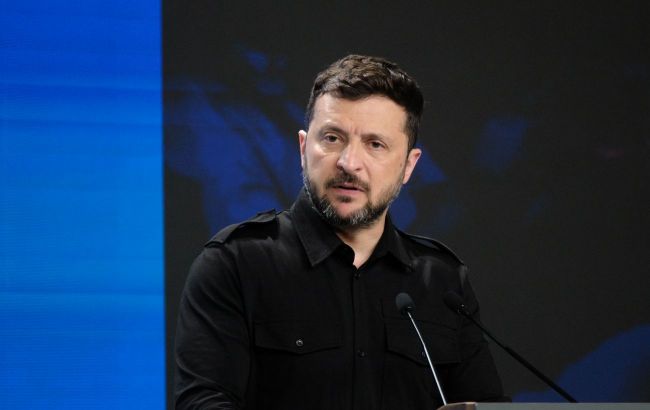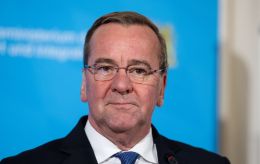Zelensky's support drops - What's causing Ukrainians to shift?
 President of Ukraine Volodymyr Zelenskyy (photo: Vitalii Nosach, RBC-Ukraine)
President of Ukraine Volodymyr Zelenskyy (photo: Vitalii Nosach, RBC-Ukraine)
Sociologists observe a decline in trust toward Ukraine's president, Volodymyr Zelenskyy. However, the figures remain higher than before the escalation in relations with the new US leadership, reports the KIIS (Kyiv International Institute of Sociology) survey.
The level of trust in Zelenskyy steadily increased from December 2024 and reached 74% at the beginning of May 2025 (22% did not trust him).
However, from the second half of May to early June 2025, a decline in trust is already observed: 65% of Ukrainians trust Zelenskyy, while 30% do not. Accordingly, the trust-distrust balance stands at +35%.
 * The option "hard to say" was not read to respondents. It was only marked if the respondent requested it.
* The option "hard to say" was not read to respondents. It was only marked if the respondent requested it.
Reasons for the rating drop
As sociologists note, the level of trust decreased over a fairly short period, naturally raising questions about the reasons.
"We do not have additional information about the specific reasons for the decrease in trust. This requires conducting panel researches, where we survey the same people over a certain period of time and can ask why their opinion has changed compared to the previous survey," the KIIS says.
However, sociologists highlight several factors that may have influenced Zelenskyy's rating:
Weakening of the effect of rallying around the flag. Since February 2025, amid escalating relations with the new US leadership, there has been a sharp rise in trust and national unity.
"Now, in a few months, the population may be 'acclimating' to the new international context and its influence on the perception of the President may decrease. At the same time, other factors, such as the internal situation, may again have a stronger influence on how Ukrainians assess the President’s activities and form their attitude towards him," the message notes.
Short-term impact of signing the Minerals Agreement. The previous survey (which recorded a rise in trust to 74%) was conducted at the beginning of May 2025, immediately after the agreement's signing.
"Perhaps this caused a short-term surge of optimism and hope in some people, which was also reflected in higher trust in the President. After such surges, there is usually a return to more “normal” indicators (which in statistics is called regression to the mean)," sociologists write.
Lack of progress in ending the war. Some people may have had inflated expectations about the nearness of the war’s end, particularly due to various negotiations that took place throughout May 2025.
"However, the events of this period did not indicate that the end of the war was approaching. On the contrary, the increase in Russian attacks in various directions (in particular, in the Sumy oblast, approaching the Dnipropetrovsk oblast, etc.), large-scale air attacks, and the destructive behavior of the Russians in the negotiations before/during/after Istanbul, on the contrary, indicated the opposite intentions. That is, the average Ukrainian could easily see that the Russians did not want peace," the KIIS states.
The Kyiv International Institute of Sociology (KIIS) surveyed 1,011 respondents from May 15 to June 3, 2025.
According to data from leading Ukrainian sociological companies, Zelenskyy's rating soared in 2025 following Donald Trump's rise to power and a shift in US policy toward Ukraine.
At the same time, the situation looks different in those surveys where the Ambassador to London, Valerii Zaluzhnyi, is included in the list. The former Commander-in-Chief of the Armed Forces of Ukraine has a higher rating than the president.

